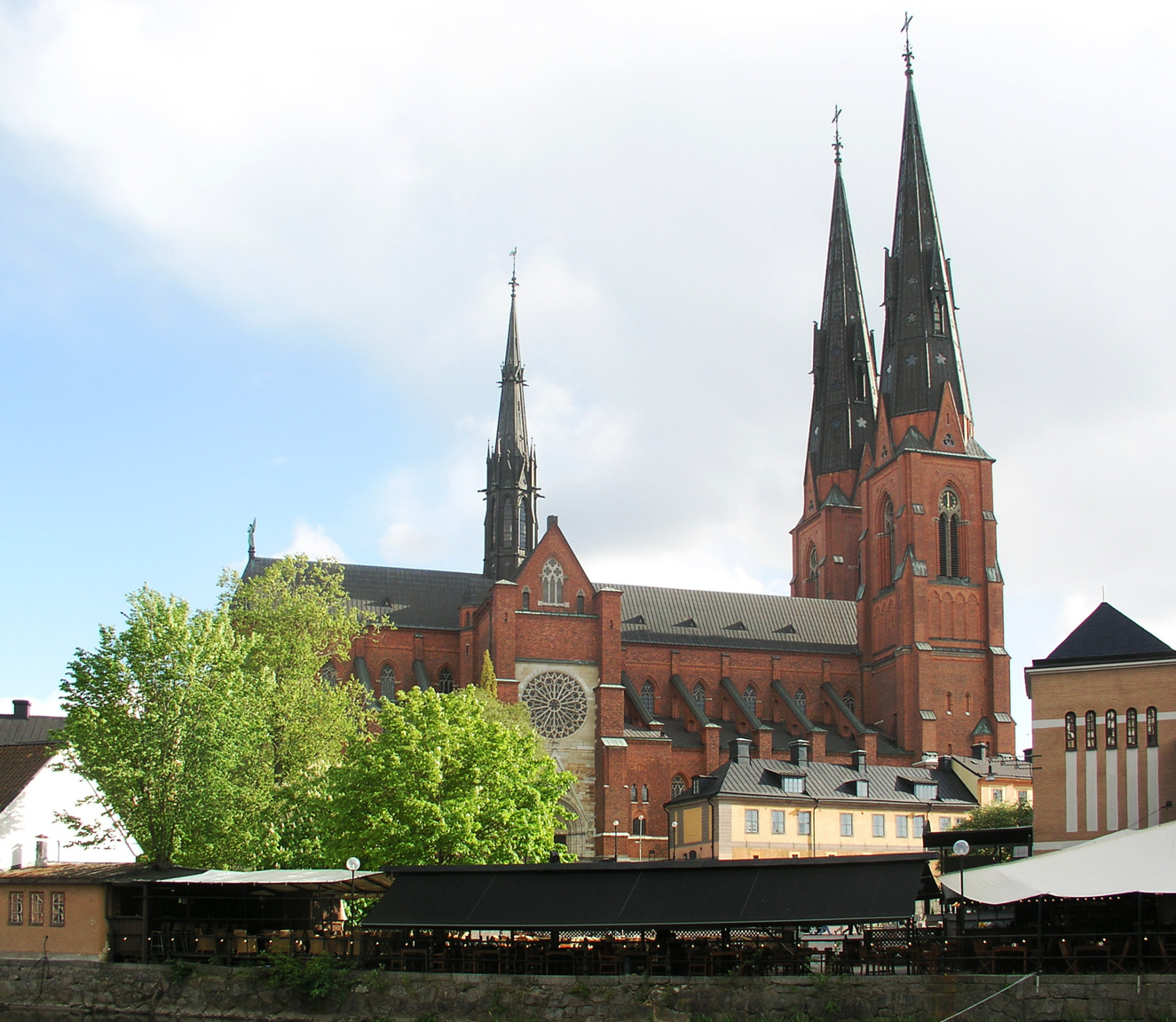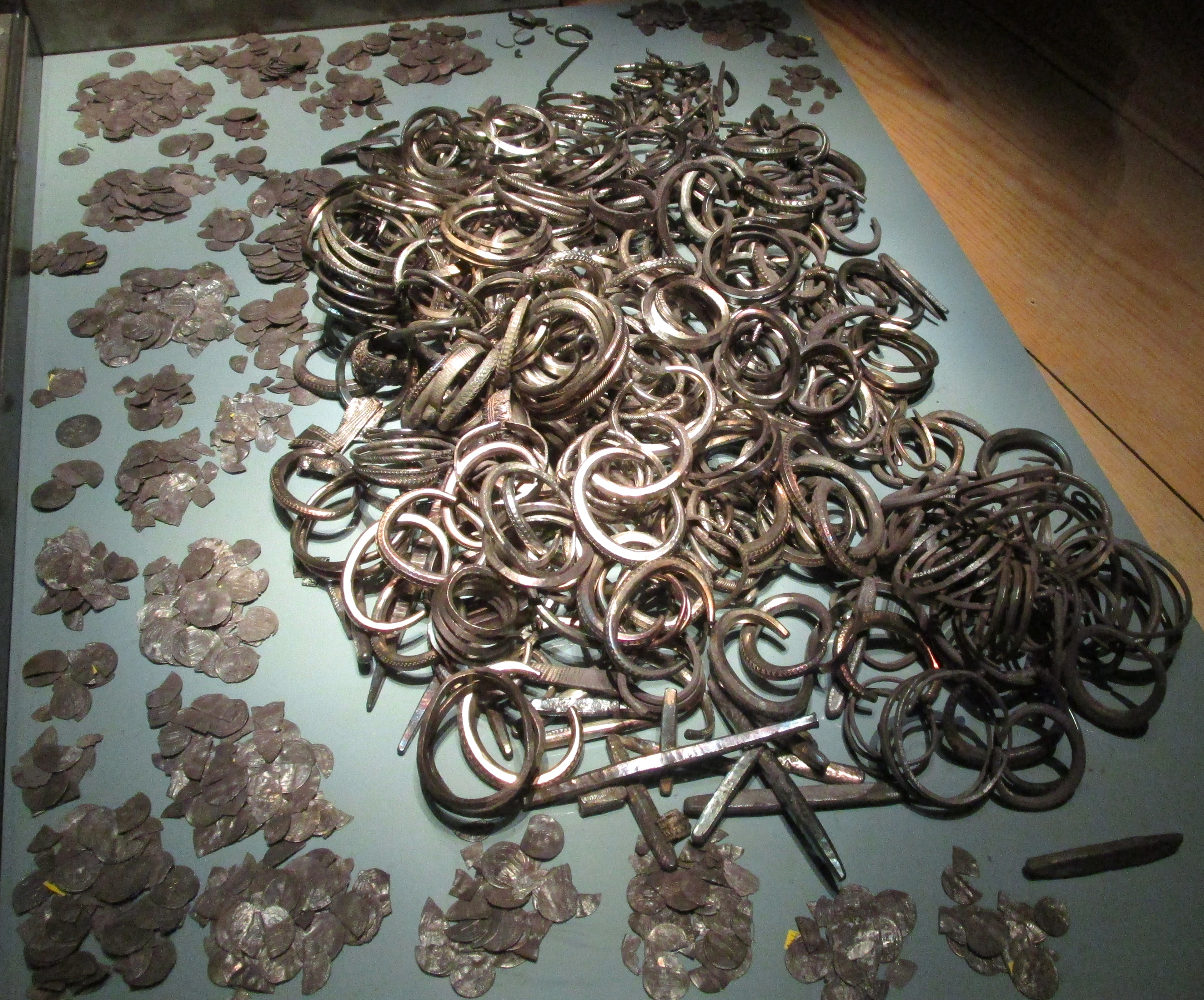|
Haqvin Spegel
Haquin Spegel (Haqvin) (born Kåkan Spegel; 14 June 1645 – 17 April 1714) was a Swedish religious author and hymn writer who held several bishop's seats. Biography Spegel was born on 14 June 1645, in Ronneby. In 1675, the King Charles XI of Sweden appointed him as court chaplain. During the wars in the following years, he followed the King, and became a close confidant of his. He kept a diary during the whole time, which has proven to be valuable as research material. In 1680, he wed Queen Ulrika Eleonora and the King. He spent the following five years mainly on the island of Gotland as a superintendent over the Diocese of Visby. He managed to write the ''Rudera Gothlandica'' during this time (published first 1901). In 1685, he was appointed Bishop of Linköping in eastern Sweden. In 1693, he was transferred to the seat in Diocese of Skara, central Sweden, where he remained until 1711. On the death of the Archbishop of Uppsala, Spegel was elected his successor, although he on ... [...More Info...] [...Related Items...] OR: [Wikipedia] [Google] [Baidu] |
Archbishop Of Uppsala
The Archbishop of Uppsala (spelled Upsala until the early 20th century) has been the primate of Sweden in an unbroken succession since 1164, first during the Catholic era, and from the 1530s and onward under the Lutheran church. Historical overview There have been bishops in Uppsala from the time of Swedish King Ingold the Elder in the 11th century. They were governed by the archbishop of Hamburg-Bremen until Uppsala was made an archbishopric in 1164. The archbishop in Lund (which at that time belonged to Denmark) was declared primate of Sweden, meaning it was his right to select and ordain the Uppsala archbishop by handing him the pallium. To gain independence, Folke Johansson Ängel in 1274 went to Rome and was ordained directly by the pope. This practice was increasing, so that no Uppsala archbishop was in Lund after Olov Björnsson, in 1318. In 1457, the archbishop Jöns Bengtsson (Oxenstierna) was allowed by the pope to declare himself primate of Sweden. Uppsala (t ... [...More Info...] [...Related Items...] OR: [Wikipedia] [Google] [Baidu] |
Gotland
Gotland (; ; ''Gutland'' in Gutnish), also historically spelled Gottland or Gothland (), is Sweden's largest island. It is also a Provinces of Sweden, province/Counties of Sweden, county (Swedish län), Municipalities of Sweden, municipality, and List of dioceses, deaneries and parishes of the Church of Sweden, diocese. The province includes the islands of Fårö and Gotska Sandön to the north, as well as the Karlsö Islands (Lilla Karlsö, Lilla and Stora Karlsö, Stora) to the west. The population is 61,023 (2024) of which about 23,600 live in Visby, the main town. Outside Visby, there are minor settlements and a mainly rural population. The island of Gotland and the other areas of the province of Gotland make up less than one percent of Sweden's total land area. The county formed by the archipelago is the second smallest by area and is the least populated in Sweden. In spite of the small size due to its narrow width, the driving distance between the furthermost points of the ... [...More Info...] [...Related Items...] OR: [Wikipedia] [Google] [Baidu] |
Swedish Lutheran Hymnwriters
Swedish or ' may refer to: Anything from or related to Sweden, a country in Northern Europe. Or, specifically: * Swedish language, a North Germanic language spoken primarily in Sweden and Finland ** Swedish alphabet, the official alphabet used by the Swedish language * Swedish people or Swedes, persons with a Swedish ancestral or ethnic identity ** A national or citizen of Sweden, see demographics of Sweden ** Culture of Sweden * Swedish cuisine See also * * Swedish Church (other) * Swedish Institute (other) * Swedish invasion (other) * Swedish Open (other) Swedish Open is a tennis tournament. Swedish Open may also refer to: * Swedish Open (badminton) * Swedish Open (table tennis) * Swedish Open (squash) * Swedish Open (darts) {{disambiguation ... {{disambig Language and nationality disambiguation pages ... [...More Info...] [...Related Items...] OR: [Wikipedia] [Google] [Baidu] |
Swedish-language Writers
Swedish ( ) is a North Germanic language from the Indo-European language family, spoken predominantly in Sweden and parts of Finland. It has at least 10 million native speakers, making it the fourth most spoken Germanic language, and the first among its type in the Nordic countries overall. Swedish, like the other Nordic languages, is a descendant of Old Norse, the common language of the Germanic peoples living in Scandinavia during the Viking Age. It is largely mutually intelligible with Norwegian language, Norwegian and Danish language, Danish, although the degree of mutual intelligibility is dependent on the dialect and accent of the speaker. Standard Swedish, spoken by most Swedes, is the national language that evolved from the Central Swedish dialects in the 19th century, and was well established by the beginning of the 20th century. While distinct regional Variety (linguistics), varieties and rural dialects still exist, the written language is uniform and Standard langu ... [...More Info...] [...Related Items...] OR: [Wikipedia] [Google] [Baidu] |
18th-century Lutheran Archbishops
The 18th century lasted from 1 January 1701 (represented by the Roman numerals MDCCI) to 31 December 1800 (MDCCC). During the 18th century, elements of Age of Enlightenment, Enlightenment thinking culminated in the Atlantic Revolutions. Revolutions began to challenge the legitimacy of monarchical and aristocratic power structures. The Industrial Revolution began mid-century, leading to radical changes in Society, human society and the Natural environment, environment. The European colonization of the Americas and other parts of the world intensified and associated mass migrations of people grew in size as part of the Age of Sail. During the century, History of slavery, slave trading expanded across the shores of the Atlantic Ocean, while declining in Russian Empire, Russia and Qing dynasty, China. Western world, Western historians have occasionally defined the 18th century otherwise for the purposes of their work. For example, the "short" 18th century may be defined as 1715� ... [...More Info...] [...Related Items...] OR: [Wikipedia] [Google] [Baidu] |
17th-century Swedish Lutheran Bishops
The 17th century lasted from January 1, 1601 (represented by the Roman numerals MDCI), to December 31, 1700 (MDCC). It falls into the early modern period of Europe and in that continent (whose impact on the world was increasing) was characterized by the Baroque cultural movement, the latter part of the Spanish Golden Age, the Dutch Golden Age, the French ''Grand Siècle'' dominated by Louis XIV, the Scientific Revolution, the world's first public company and megacorporation known as the Dutch East India Company, and according to some historians, the General Crisis. From the mid-17th century, European politics were increasingly dominated by the Kingdom of France of Louis XIV, where royal power was solidified domestically in the civil war of the Fronde. The semi-feudal territorial French nobility was weakened and subjugated to the power of an absolute monarchy through the reinvention of the Palace of Versailles from a hunting lodge to a gilded prison, in which a greatly expanded r ... [...More Info...] [...Related Items...] OR: [Wikipedia] [Google] [Baidu] |



